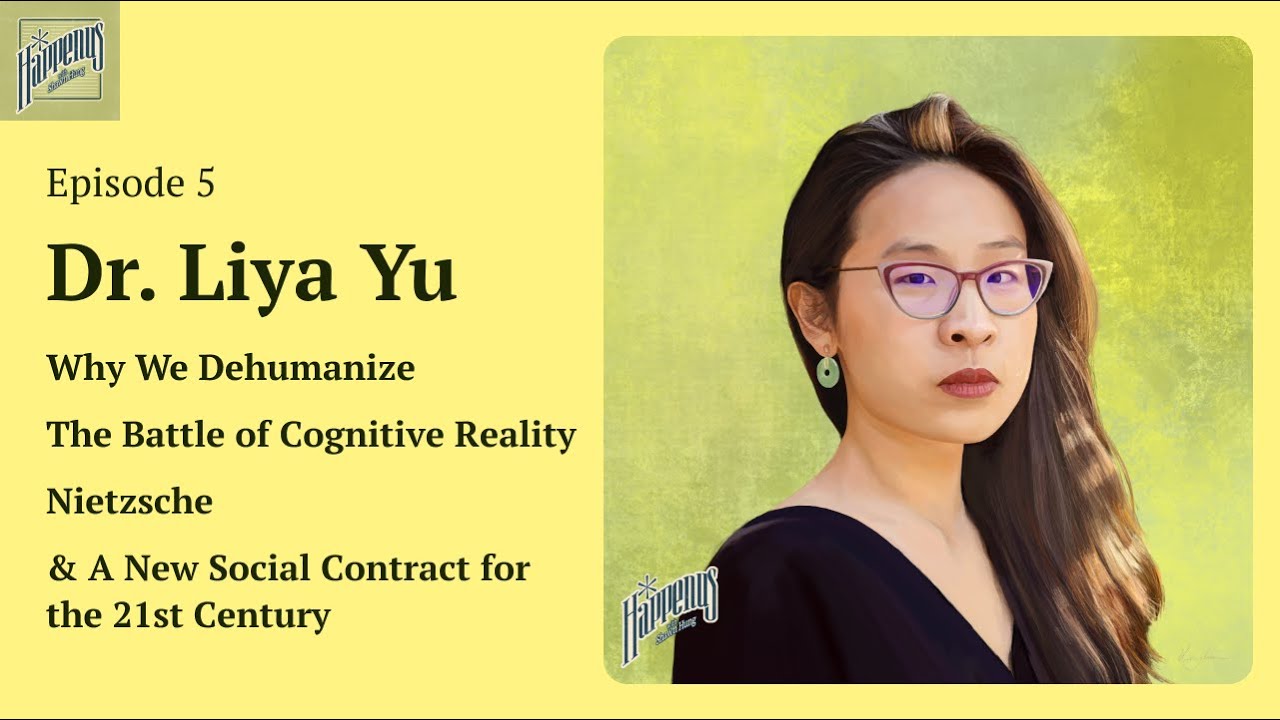Neuropolitical Scientist Dr. Liya Yu on Why We Dehumanize and the Battle Over Cognitive Reality
Neuropolitical scientist, writer, and artist Dr. Liya Yu is as unique as her expertise. Born in Hunan, China, and raised in Germany, her story is one of bridging cultures from an early age. She was trained in political science, specializing in political philosophy at the University of Cambridge, and completed an interdisciplinary Ph.D. in political neuroscience at Columbia University, focusing on racial exclusion and dehumanization. Currently, she’s a visiting researcher at the Institute of Medical Psychology at Ludwig-Maximilians University Munich and the Department of Political Science at National Taiwan University.
Dr. Yu’s expertise extends beyond the halls of academia. She’s the author of “Vulnerable Minds: The Neuropolitics of Divided Societies” and a respected voice on anti-Asian racism, political neuroscience, and democratization in East Asia. What truly sets Dr. Yu apart is how she interweaves science, art, and activism into a unified vision she calls “Gesamtkunstbefreiung” – a holistic approach to liberation in creating a new embodied language and philosophy through which we humanize ourselves. Besides being a researcher and writer, she’s also an artist and lead singer of a doom metal band, Neuropathik.
Our conversation begin with Dr. Yu’s experience attending the protest earlier this May in Taipei, exploring what it meant to chant alongside thousands in front of Taiwan’s parliament. This sets the stage for a border discussion about Asia countries with authoritarian histories and collective trans-generational trauma. From there, we dive into her views on the turning points of social movements, the superpower of mentalizing, and why we’re currently locked in a battle over the cognitive reality that feeds on dehumanization and polarization. We also delve into the existential and ideological crisis facing youth today and how Dr. Yu’s neuropolitical theory offers a new path to self-humanization.
In the later half, through a more philosophical lens, we circled around the recent campus tensions simmering at Columbia, Taiwan’s unique identity challenges, and Dr. Yu’s journey of liberation in making sense of her conflicted identity growing up in between cultures. In the end, we touch on her artistic side of performing in a doom metal band and how she aims to communicate art reflecting her authentic self. Throughout, we grapple with Nietzsche’s philosophy of confronting our human predicaments, humanness, and the desire for the zest of life.
00:00 – Introduction
05:18 – Recent protests in Taiwan
10:05 – Holding contradictions, turning points in social movements
13:43 – Cognitive biases and mentalization
26:45 – The battle of cognitive reality
31:15 – Identity challenges and existential crises among youth
35:08 – The vision and origin of “Gesamtkunstbefreiung”
42:42 – Taiwan’s identity and opportunities forward
46:31 – Campus tensions at Columbia and the state of liberal discourse
55:13 – Art as resistance and activism
58:55 – Aesthetic creation of desire
1:00:49 – Dr. Yu’s metal band Neuropathik
1:02:05 – Nietzsche’s philosophy in confronting darkness
1:03:50 – Nietzsche’s idea of Humaness in ‘The Gay Science’
1:08:37 – Desire as an antidote of grief
1:11:55 – Moments of profound connection and wholeness
1:13:31 – Taiwan’s beauty and fragility
1:14:43 – Closing
Learn more and subscribe to the Happenus Newsletter: https://happenuspod.com
Listen, rate, and review:
Apple Podcasts: https://podcasts.apple.com/us/podcast/happenus-with-shawn-hung/id1754871811
Spotify: https://open.spotify.com/show/6oRTpQsSx0eMXCyE8iOTmc
Follow Happenus:
Instagram: https://www.instagram.com/happenuspod
Twitter(X): https://www.x.com/happenuspod
Portrait illustration by Kay Lam.
© Copyright 2024 Happenus LTD. All rights reserved.
source

